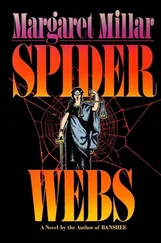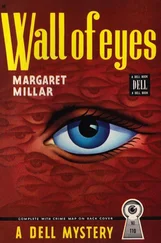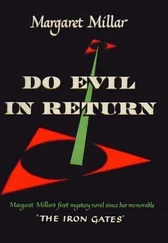He didn’t realize that he was crying until he felt the sting of salt on his lips. He sometimes cried when he was alone at night and the hours seemed so ironically endless; but never in front of anyone, not even his wife on the day she left him. He wiped his eyes with his coat sleeve, ashamed that he had broken down in front of these three men.
Cordwink stared out of the window, motionless, his face like granite. Inside, he felt something begin to move, like a steel claw, reaching out and clutching his stomach, squeezing. It could be me. Or Alma and the kids. Don’t let it happen. Me or Alma and the kids.
A pair of headlights swerved up the driveway. He glanced across the room at Loftus. Loftus had slumped forward in his chair, his hands covering his eyes. The back of his neck looked very young, a boy’s neck, thin and vulnerable and white as wax.
“Loftus.”
There was no reply, no stirring in response to his name.
“Loftus,” Cordwink said again. “The car is here.”
Loftus raised his head slowly. He seemed dazed, as if he’d flown his prison, had gone miles and years away, and was now returning, like a soul to hell.
“I’m ready,” Loftus said.
611 Division Street was a three-story red-brick house on the outskirts of the college district. Light and noise poured from nearly every window. On the second floor two young men were bending over a microscope. In the adjoining room a boy sat at a table by the window, absorbed in the blare of the radio beside him, his head resting on an open book. Meecham couldn’t see into any of the rooms on the top floor, but it sounded as if a party was going on up there. There was a continuous babble of voices punctuated by sudden peals of laughter.
The left part of the lower floor was dark and the shades were drawn.
Following Cordwink up the sidewalk Meecham thought, it’s a funny place for Loftus to live — a dying man in the midst of all this noise and youth.
The sidewalk forked to the left. A little path no more than a foot wide had been shoveled through the snow and sprinkled with cinders. This was Loftus’ private entrance.
Cordwink took out the ring of keys that Loftus had given him. “Still want to tag along, Meecham?”
“Certainly.”
“What do you expect me to find?”
“The bloodstained clothes he was wearing Saturday night.”
“You seem to have a lot of confidence in that confession. Wishful thinking, Meecham?”
“Could be.”
“You and Loftus are kind of palsy for a couple of guys who never met before.”
“I’m palsy with everyone.”
“Yeah. You got a heart of gold, haven’t you? Cold and yellow.”
“You’re getting to be a sour old character if I ever saw one.”
Cordwink inserted one of the keys into the lock. It didn’t fit, but the second one did. The flimsy door, curtained at the top, swung inward. “By the way, it wouldn’t be quite ethical to take on a second client while your first client is still in jail.”
“She won’t be in jail long. Your forty-eight hours are nearly up, Cordwink. By tomorrow morning you have to charge her or release her.”
“And if she’s released, you’d take on a lost cause like Loftus?”
“One minute you’re implying that his confession is a phony and the next minute he’s a lost cause. Make up your mind.”
“He’s a lost cause to you, anyway. He hasn’t much money.”
“Well?”
“Or at least that’s what he claims.” Cordwink turned on the light switch inside the door, but he didn’t look at the room. He was watching Meecham. “Suppose you were in Loftus’ shoes and wanted some money.”
“Money isn’t much good, where’s he’s going.”
“Suppose he didn’t want it for himself. For a relative, maybe, or a close friend. It seems to me that Loftus had something very valuable to sell — his absolutely certain knowledge that he’s going to die anyway. No matter what he does, he has nothing to lose.”
“So?”
“So he committed a murder. For money.”
“Whose money?”
“Virginia Barkeley’s.”
“That sounds reasonable enough,” Meecham said calmly, “except for a few little things. First, Mrs. Barkeley only met Loftus once, in a bar, for about five minutes. That’s not quite long enough to arrange a big deal like murder.”
“She could have known him before. They’d both deny that, naturally, if there’s a deal on.”
“In the second place, if she paid him to kill Margolis, she wouldn’t have arranged the matter so that she’d be caught as she was.”
“Maybe she’s very, very subtle.”
“In the third place she hasn’t any money and neither has her husband. I’ve checked. They live up to their income, the house is mortgaged and the furniture isn’t paid for.”
“There are ways of raising money.”
“And in the fourth place you don’t even know that Loftus has any money.”
“I’ll find out.”
“Your trouble is stubbornness, Cordwink. You were sure Mrs. Barkeley was guilty and you can’t admit you were wrong even with Loftus’ confession staring you in the face.”
“What’s staring me in the face is a lot of funny coincidences and right in the middle of them is a lawyer called Meecham.”
“Is that a fact?”
“That’s one. Another one has just occurred to me. Suppose Loftus was paid for services rendered, what did he do with the money?”
Meecham said wearily, “He dug a hole in the back yard and buried it.”
“I figure he gave it to someone, either the party he wanted it for in the first place, or a go-between.”
“Me?”
“You.”
“Whom am I going between, or between whom am I going? Oh, hell. You know I never saw Loftus until today.”
“That’s your story.”
“His, too.”
“It would be, of course, if the two of you are working in collusion.”
Meecham lit a cigarette. There was no ash tray in the room that he could see, so he put the burnt match in his pocket. “So now you’ve dreamed up a place for the money you’ve dreamed up. Want to see my wallet? Check books? Or maybe I’m wearing a money belt. Why don’t you check?”
“Don’t worry, I will. When the time comes.”
“You can waste a lot of time chasing little bright butterflies, Cordwink.”
“I like the exercise.”
Meecham raised his head. He saw that the Sheriff was looking rather pleased with himself, and he wondered whether Cordwink really believed in his own theory or whether he was merely needling him. Cordwink hated all lawyers, but his hatred wasn’t a personal one. It was a matter of principle: he hated lawyers because he believed their sole objective was to circumvent the law.
Cordwink began to circle the room, his eyes moving from object to object with alert precision.
The room was fairly large, and fitted out for light housekeeping. In one corner, half-hidden by a painted cardboard screen, was a small sink and a two-burner gas plate and a table. The bed was a studio couch neatly covered with a blue and yellow chenille spread, and above it, high on the wall, a trio of college pennants was nailed:
Illinois. Arbana. Yale.
The pennants were very old and very dusty. They probably didn’t belong to Loftus, Meecham thought. They had been on the wall when he moved in and he left them there because they were too high to reach. Anyway, there they were, emphasizing the transient feeling of the room, symbols of college boys who were no longer boys, football teams that were forgotten, textbooks left to mildew, with silverfish camping, sleek and comfortable, between the pages.
A room for transients, with Loftus the last, the most transient of them all. It was as if Loftus had known this and had taken pains to obliterate his traces. The whole room, except for the pennants, was scrupulously clean. There were no clothes or shoes lying around, the top of the bureau held only an alarm clock with a glass bowl inverted over it, and the wastebasket beside the desk was empty. Whatever had been in the wastebasket — letters, bills, check stubs, pages from a diary? — they were all gone now. There was no clue to Loftus’ mind and personality in the room except for the books that filled the high narrow bookcase.
Читать дальше
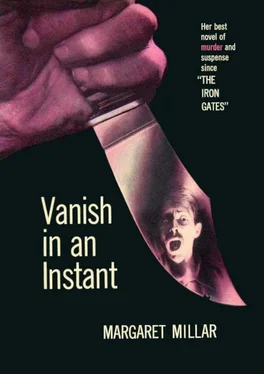



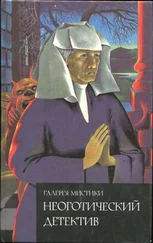
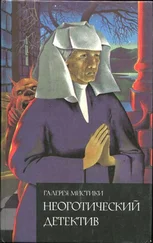

![Маргарет Миллар - Rose's Last Summer [= The Lively Corpse]](/books/384369/margaret-millar-rose-s-last-summer-the-lively-c-thumb.webp)
